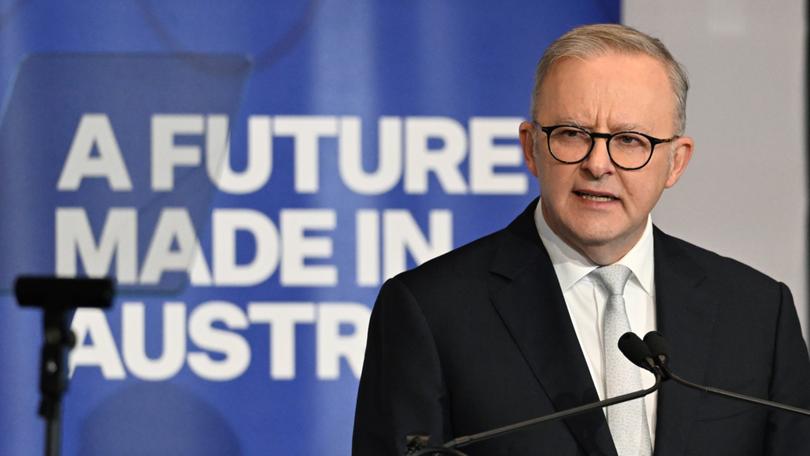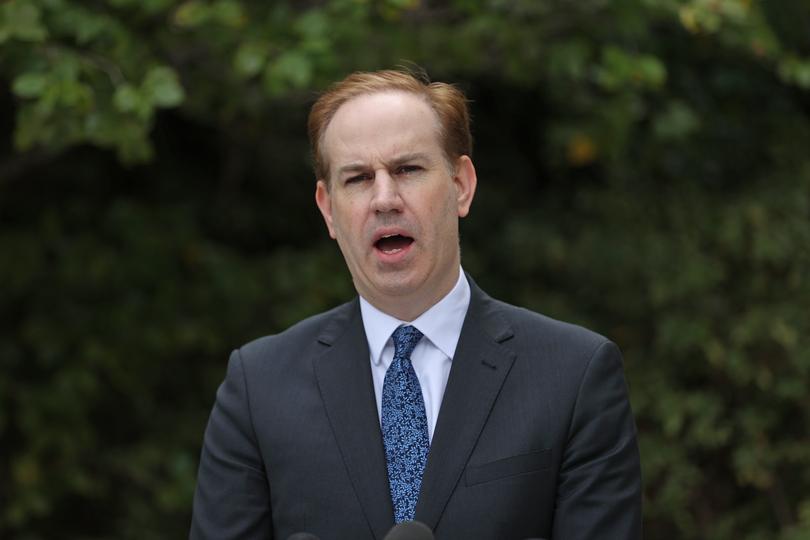Productivity Commission chair Danielle Wood warns of cost of Anthony Albanese’s ‘Made in Australia’ plan
One of the Government’s top economic advisers has warned the plans to revive manufacturing and compete on the green transition will inevitably come at a big cost.

One of the Government’s top economic advisers has warned the plans to revive manufacturing and compete on the green transition will inevitably come at a big cost, even as the resources sector is cautiously optimistic there will be new incentives to attract investors to critical minerals projects in next month’s Federal Budget.
But the resources sector has also warned more than money was needed, with streamlined approvals and ready-to-roll infrastructure also vital to getting projects going.
The Prime Minister on Thursday unveiled plans for Australia’s answer to the incentives drawing investment overseas to places such as the United States, Europe, Japan, Canada and South Korea.
Sign up to The Nightly's newsletters.
Get the first look at the digital newspaper, curated daily stories and breaking headlines delivered to your inbox.
By continuing you agree to our Terms and Privacy Policy.The Government is considering a suite of new “financing facilities and investor incentives” to include in the Budget that will build on its National Reconstruction Fund and backing for hydrogen and solar manufacturing.
But Productivity Commission chair Danielle Wood said no one should pretend “that this is going to be costless”, in comments to media.
The commission has long been critical of industry assistance, producing an annual report on subsidies and tariffs.
In the most recent report, last July, deputy chair Alex Robson noted the same trends Mr Albanese spoke of on Thursday and labelled them “old-fashioned protectionism”.
Ms Wood said the Government risked creating a class of businesses that were reliant on handouts, and it should at least have a time-limited review or exit strategy.
The Budget would contain “new programs, new funding and new opportunities working with business”, Mr Albanese said.
“There hasn’t been enough investment in value-adding ... there has been investment in extraction, but not investment in value-adding, creating jobs and increasing up the value chain.”
Mr Albanese warned the global economy was shifting towards increased government intervention and Australia had to move or be left behind.
The resources sector has been pushing for incentives such as tax credits in response to the mammoth enticements in the US Inflation Reduction Act (IRA).
However, it also believes money isn’t the whole answer and governments need to step up in other areas such as making sure more industrial land is available and hooked up to necessary infrastructure such as water, power and gas.
As much as anything, the IRA and similar measures in Europe on clean energy have captured the global imagination.
Australia so far has not managed this, but the Future Made in Australia Act Mr Albanese announced on Thursday had the potential to do so.
Chamber of Minerals and Energy of WA chief executive Rebecca Tomkinson said financial incentives were necessary to compete with the measures on offer in other jurisdictions but more was needed to reduce the up-front operating costs.
Measures could include debt financing functions, production tax credits and direct capital grants for downstream processing and critical pieces of shared infrastructure.
“We need to say we’re open for business – come and build your battery processing plant here and work with our industry to build this next generation of critical minerals,” she told The West Australian.
The Association of Mining and Exploration Companies has also been pushing strongly for production tax credits, with members in Canberra earlier in the year talking to politicians about how to respond to the IRA.

Chief executive Warren Pearce said Mr Albanese’s rhetoric on Thursday recognised such incentives would be vital to Australia becoming a global player in critical minerals processing.
“Australia has never backed away from a fight. To hear the Prime Minister sharpening the elbows of our nation to protect and prosper is very encouraging,” he said.
His association continues to work with the Government on a potential 10 per cent production tax credit, which modelling it commissioned showed would add $2.4 billion to the economy and create more than 4000 jobs.
“The PTC is a proven mechanism that would reward those willing to take a risk in establishing new and costly industries, that if successful, will deliver a significant return on investment for the government,” Mr Pearce said.
The promise of an overarching response to the IRA drew commendation from across the clean energy sector, investor groups, unions and researchers.
Opposition Leader Peter Dutton continued his scepticism of the pledge to rebuild a manufacturing sector, which he says is lumbering under the costs of energy and industrial relations changes.
“He’s promising Australian-made solar panels — it’s not going to happen because this Prime Minister is driving up every input cost and Australian manufacturing is going broke,” he said.

